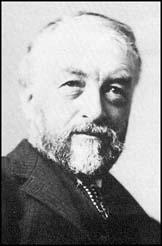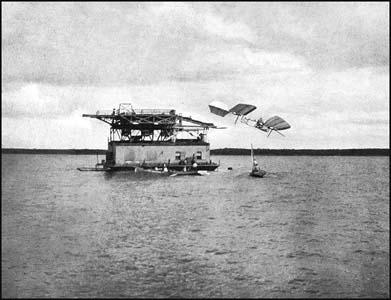Samuel Pierpont Langley

Samuel Pierpont Langley was born in Roxbury, Massachusetts in 1834. After completing his education he worked as both an engineer and architect.
In 1865 Langley became assistant at the Harvard College Observatory. This was followed by employment at the US Naval Observatory at Annapolis. In 1867 he was appointed Professor of Astronomy at Western University of Pennsylvania. He was also director of the Allegheny Observatory, a post he was to hold for over 20 years.
Langley invented the bolometer in 1880, an instrument which recorded the infrared radiation of the Sun quantitatively in terms of an electric current. In 1887 he was appointed secretary of the Smithsonian Institution in Washington.
In 1890 Langley founded the Smithsonian Astrophysical Observatory and began research into aerodynamics. In 1901 Langley produced the model of the first flying machine powered by a gasoline engine.
In 1896 his steam-driven areoplane was launched by catapult over the Potomac River. It flew for 90 seconds and covered a distance of 42,000 feet (12,802 m). It was the first recorded flight by an uncrewed engine-equipped aircraft.
In 1901 Langley produced the model of the first flying machine powered by a gasoline engine. This success of these tests encouraged him to build a full-sized plane called the Aerodrome. The engine was developed by his assistant, Charles Manly. The Aerodrome had a 48 foot (14.63 m) wingspan and weighed 730 pounds (331 kg). The project was funded by the United States government.
Langley tested the Aerodrome for the first time on 7th October, 1903. The Aerodrome crashed soon after leaving the launch pad on the Potomac River. The front wing was badly damaged but this was repaired and a second attempt was made on 9th December. This time the rear wing and tail completely collapsed during the launch.
Langley was ridiculed by the press and criticized by members of the Congress for wasting taxpayers money. Disillusioned by this response, Langley decided to abandon the project.
Samuel Pierpont Langley died in 1906.

